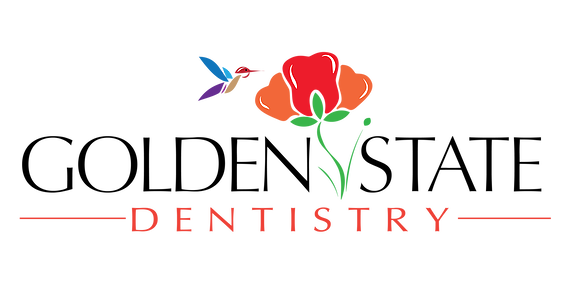 Dry mouth, also called Xerostomia, is a common condition that affects millions of people worldwide. While it may seem like a minor issue, dry mouth can significantly impact your oral health and overall well-being. If left untreated, it can lead to tooth decay, gum disease, and other dental problems. In this blog, we’ll explore the causes, symptoms, and effective treatments for dry mouth, so you can take the necessary steps to protect your oral health.
Dry mouth, also called Xerostomia, is a common condition that affects millions of people worldwide. While it may seem like a minor issue, dry mouth can significantly impact your oral health and overall well-being. If left untreated, it can lead to tooth decay, gum disease, and other dental problems. In this blog, we’ll explore the causes, symptoms, and effective treatments for dry mouth, so you can take the necessary steps to protect your oral health.
Causes of Dry Mouth
There are several factors that can contribute to dry mouth. Understanding these causes can help you identify the root of the problem and find the right treatment.
1. Medications
Many prescription and over-the-counter medications can cause dry mouth as a side effect. Common medications such as antihistamines, antidepressants, blood pressure medications, and pain relievers can decrease the production of saliva.
2. Medical Conditions
Certain medical conditions, such as diabetes, Sjögren’s syndrome, and autoimmune diseases, can lead to dry mouth. These conditions can affect the salivary glands, reducing their ability to produce saliva.
3. Dehydration
Not getting enough water throughout the day, as well as excessive consumption of caffeine or alcohol, can cause dehydration, which leads to dry mouth.
4. Cancer Treatments
Radiation therapy and chemotherapy, particularly when directed at the head or neck, can damage the salivary glands, resulting in dry mouth.
4. Smoking
Smoking reduces saliva production and increases the risk of dry mouth. Additionally, tobacco use can contribute to gum disease and bad breath, worsening oral health.
5. Mouth breathing
Breathing through the mouth, especially while sleeping, can cause saliva to evaporate more quickly, leading to dryness. This can be due to nasal congestion, allergies, or a habit of open-mouth breathing.
6. Stress
High levels of stress and anxiety can trigger dry mouth by affecting the nervous system’s ability to regulate saliva production. Additionally, many people experiencing stress may breathe through their mouth more often or forget to stay hydrated, exacerbating the condition.
Recognizing the Symptoms of Dry Mouth
It’s essential to recognize the symptoms of dry mouth early so that you can address the issue before it worsens. Common signs of dry mouth include:
- A persistent dry or sticky feeling in the mouth
- Increased thirst
- Difficulty chewing, swallowing, or speaking
- Bad breath (halitosis)
- Cracked lips or sores in the mouth
- An increased risk of cavities and gum disease due to the lack of saliva
If you notice any of these symptoms, it’s important to take action and seek advice from a Walnut Creek dentist.
Effective Treatment for Dry Mouth
Fortunately, there are several ways to treat dry mouth and prevent further complications. Here are some common treatment options:
At-Home Remedies
- Stay Hydrated: Drinking plenty of water throughout the day is one of the simplest and most effective ways to combat dry mouth.
- Use Sugar-Free Gum or Lozenges: Chewing sugar-free gum or sucking on lozenges can help stimulate saliva production.
- Avoid Dehydrating Substances: Limit your intake of caffeine, alcohol, and tobacco, all of which can dry out the mouth.
- Use a Humidifier: Placing a humidifier in your bedroom at night can add moisture to the air and reduce dryness while you sleep.
Dental and Medical Treatments
- Saliva Substitutes: Over-the-counter saliva substitutes and mouthwashes designed for dry mouth relief can provide temporary relief.
- Prescription Medications: Your Walnut Creek dentist may prescribe medications that stimulate saliva production to help combat dry mouth.
- Treat Underlying Conditions: If your dry mouth is due to an underlying medical condition or medication, adjusting your treatment plan with your doctor can be beneficial.
- Regular Dental Check-Ups: Visiting your Walnut Creek dentist regularly is crucial for preventing dental issues like cavities and gum disease caused by dry mouth.
Preventing Dry Mouth
Prevention is key when it comes to dry mouth. Here are some tips to help you avoid this condition:
- Practice good oral hygiene, brushing your teeth at least twice a day and flossing daily.
- Choose hydrating foods like fruits and vegetables to help keep your mouth moist.
- Try to breathe through your nose, especially during sleep, to reduce mouth breathing.
- Manage stress through relaxation techniques like deep breathing, yoga, or meditation.
- Consult with a Walnut Creek dentist for personalized advice on managing and preventing dry mouth.
Conclusion
Dry mouth can be a frustrating and uncomfortable condition, but with the right treatment, you can find relief and protect your oral health. By staying hydrated, using saliva substitutes, and working closely with a dental professional, you can effectively manage dry mouth and its symptoms.
If you’re struggling with dry mouth or noticing any of the symptoms, don’t hesitate to reach out to Golden State Dentistry. Our experienced team of professionals in Walnut Creek is here to help you find the best solutions for your oral health. Call us today at (925) 705-7093 or schedule an appointment online to discuss how we can help you maintain a healthy, hydrated mouth.


.jpg?width=712&name=GSD-Scalloped-Tongue-Causes-and-Treatment-Blog-01.27.2210.21.21%20(1).jpg)











.jpeg?width=425&name=GSD-How-to-Combat-Dental-Plaque-07.22.24-2%20(1).jpeg)



